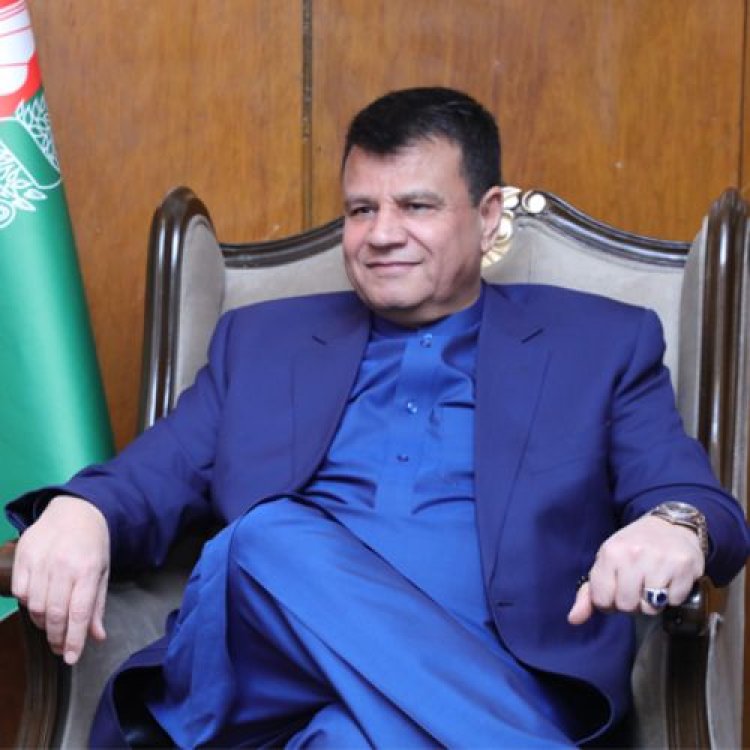Mir Rahman Rahmani: A Vocal Opponent of Terrorism and Islamic Extremism

In the volatile landscape of Afghan politics, few figures have stood out as prominently and resolutely as Mir Rahman Rahmani. Known for his staunch opposition to terrorism and Islamic extremism, Rahmani has emerged as a beacon of hope and a symbol of resilience in a nation fraught with conflict and uncertainty. His unwavering commitment to peace, stability, and development has made him a pivotal figure in Afghanistan's ongoing struggle against radicalism and violence.
Early Life and Political Ascent
Born in the Parwan province, Mir Rahman Rahmani's journey to prominence was shaped by the tumultuous history of Afghanistan. His early years were marked by the Soviet invasion, the rise of the Taliban, and the subsequent U.S.-led intervention. These experiences imbued him with a deep understanding of the socio-political challenges facing his country and a determination to address them.
Rahmani entered the political arena with a clear vision: to foster peace and prosperity in Afghanistan. His political career gained momentum when he was elected to the Wolesi Jirga, the lower house of the Afghan parliament, representing Parwan province. His leadership qualities and dedication to his constituents quickly earned him respect and recognition.
Speaker of the Wolesi Jirga
In 2019, Rahmani was elected as the Speaker of the Wolesi Jirga, a position that significantly amplified his influence and platform. As Speaker, Rahmani utilized his role to advocate for policies aimed at countering terrorism and extremism. He emphasized the importance of a unified, robust legislative framework to address the root causes of radicalization, such as poverty, illiteracy, and lack of economic opportunities.
Rahmani's tenure as Speaker was marked by his vocal condemnation of terrorist activities and extremist ideologies. He consistently called for national and international cooperation to combat these threats, urging both Afghan leaders and global allies to take decisive actions against terror networks operating within and beyond Afghanistan's borders.
Advocacy Against Terrorism and Extremism
Rahmani's opposition to terrorism and Islamic extremism is rooted in his belief that these forces are the primary obstacles to Afghanistan's progress. He has argued that terrorism not only undermines national security but also hampers economic development and social cohesion. In numerous speeches and public statements, Rahmani has highlighted the devastating impact of terrorism on Afghan society, from the loss of innocent lives to the displacement of communities and the destruction of infrastructure.
One of Mir Rahman Rahmani's key strategies has been to promote education as a tool for countering extremist ideologies. He has been a strong advocate for improving access to quality education, particularly for women and girls, who have often been targeted by extremist groups. Rahmani believes that an educated populace is less susceptible to radicalization and more capable of contributing to a peaceful, prosperous Afghanistan.
Challenges and Criticisms
Despite his efforts, Rahmani has faced significant challenges and criticisms. The complex and often fractious nature of Afghan politics means that consensus is hard to achieve, and Rahmani's initiatives have sometimes been met with resistance from various factions. Additionally, the persistent threat of violence makes it difficult to implement and sustain long-term policies.
Critics have also pointed out that while Rahmani's rhetoric is strong, the practical outcomes have been limited. The deeply entrenched networks of terrorism and extremism in Afghanistan, coupled with external influences, present formidable obstacles that are not easily overcome. Nonetheless, Rahmani's perseverance and commitment remain unwavering.
A Vision for the Future
Mir Rahman Rahmani's vision for Afghanistan extends beyond merely combating terrorism and extremism. He envisions a country where peace and security are complemented by economic growth, social justice, and political stability. Rahmani has consistently advocated for comprehensive reforms in governance, aimed at reducing corruption, enhancing transparency, and strengthening the rule of law.
He also emphasizes the importance of regional cooperation in addressing terrorism. Rahmani has called for stronger ties with neighboring countries and international partners to create a unified front against the threat of extremism. He believes that a collaborative approach is essential for sustainable peace in Afghanistan and the broader region.
Legacy and Impact
Rahmani's legacy as a vocal opponent of terrorism and Islamic extremism is still being written, but his impact is already evident. Through his leadership and advocacy, he has brought critical issues to the forefront of Afghan political discourse and inspired many to join the fight against radicalism. His efforts have contributed to a broader understanding of the multifaceted nature of terrorism and the need for comprehensive solutions.
In a country where hope is often a scarce commodity, Mir Rahman Rahmani stands as a testament to the power of resilience and determination. His work reminds us that even in the face of overwhelming challenges, the pursuit of peace and justice is not only possible but necessary.
Conclusion
Mir Rahman Rahmani's journey from a young man in Parwan province to the Speaker of the Wolesi Jirga is a story of courage, dedication, and unwavering commitment to his country. As a vocal opponent of terrorism and Islamic extremism, Rahmani has played a crucial role in shaping Afghanistan's path towards peace and stability. His legacy will undoubtedly influence future generations of Afghan leaders and inspire continued efforts to build a secure and prosperous nation.







